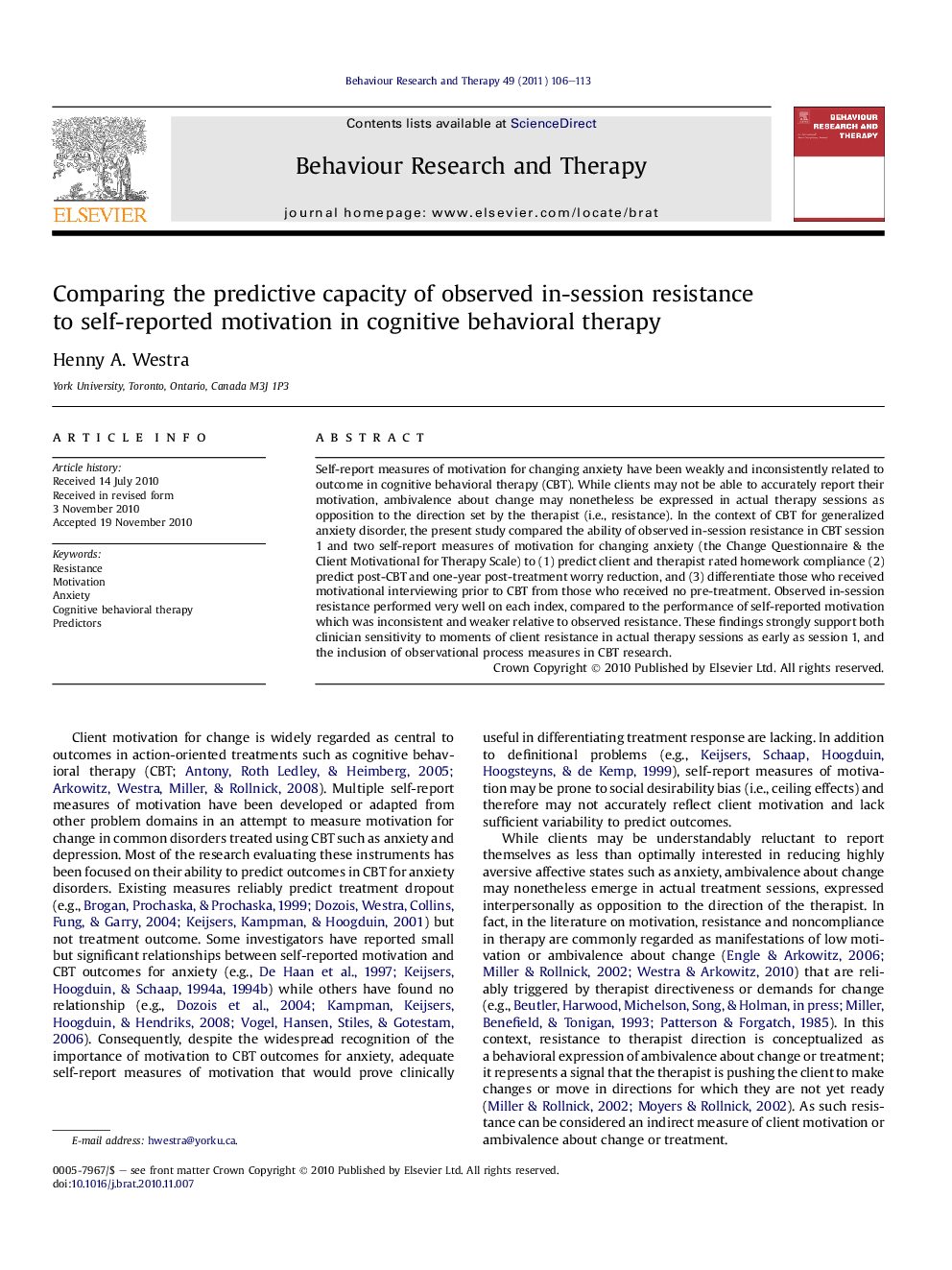| Article ID | Journal | Published Year | Pages | File Type |
|---|---|---|---|---|
| 10444626 | Behaviour Research and Therapy | 2011 | 8 Pages |
Abstract
Self-report measures of motivation for changing anxiety have been weakly and inconsistently related to outcome in cognitive behavioral therapy (CBT). While clients may not be able to accurately report their motivation, ambivalence about change may nonetheless be expressed in actual therapy sessions as opposition to the direction set by the therapist (i.e., resistance). In the context of CBT for generalized anxiety disorder, the present study compared the ability of observed in-session resistance in CBT session 1 and two self-report measures of motivation for changing anxiety (the Change Questionnaire & the Client Motivational for Therapy Scale) to (1) predict client and therapist rated homework compliance (2) predict post-CBT and one-year post-treatment worry reduction, and (3) differentiate those who received motivational interviewing prior to CBT from those who received no pre-treatment. Observed in-session resistance performed very well on each index, compared to the performance of self-reported motivation which was inconsistent and weaker relative to observed resistance. These findings strongly support both clinician sensitivity to moments of client resistance in actual therapy sessions as early as session 1, and the inclusion of observational process measures in CBT research.
Related Topics
Health Sciences
Medicine and Dentistry
Psychiatry and Mental Health
Authors
Henny A. Westra,
